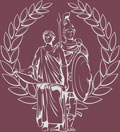Foreword: the First World War at Sea
Abstract
Jutland is the most studied of all naval battles, but the results have, until recently, been less impressive than their bulk might imply. Too many authors have tried to decide who ‘won’ a tactical stalemate that did not change the strategic situation. Although Sir Julian Corbett made these points in the 1923 Official History Naval Operations: Volume III, his successors lost sight of the bigger picture, and approached the action with partisan agendas. For two decades Jutland was studied as a Staff College exercise, by navies anxious to learn lessons, and by participants and contemporaries, seeking to apportion blame, or claim credit. Everything hinged on a few key moments, decisions made by four Admirals, and the brief encounters of capital ships. The place of the battle in the wider war was lost amidst the controversy and the fine grained focus. In Britain, America and Japan the battle was replayed, key lessons included the Royal Navy’s mastery of night fighting and the recovery of initiative led tactics. While Churchill coined the memorable phrase that Jellicoe could have lost the war in an afternoon in his The World Crisis, recognising the larger context, his account of the battle was deeply flawed, based on a discredited account the Dewar brothers produced to serve David Beatty’s agenda. After 1945 Jutland moved into history, as big gun capital ships passed out of service. But the battle over Jutland remained fierce, and narrowly focused. The historical giants of the 1950s and 1960s, Arthur J. Marder and Stephen Roskill went to war over authority and interpretation on this subject. Marder rewrote his account, Roskill disagreed. Yet beyond the heavy gun exchanges little new work was done. There were other questions to answer: were the cruiser and destroyer forces integrated into the tactical concept, why were the fleets at sea on that day, how did their movements fit into the wider war in mid-1916, and what was British strategy in the theatre on the eve of the battle? The centenary provided an opportunity to revisit the battle, engage with wider perspectives and challenge the historiographical dominance of the Western Front.
Downloads
Published
Issue
Section
License
Copyright (c) 2017 Andrew Lambert

This work is licensed under a Creative Commons Attribution-NonCommercial-NoDerivatives 4.0 International License.



